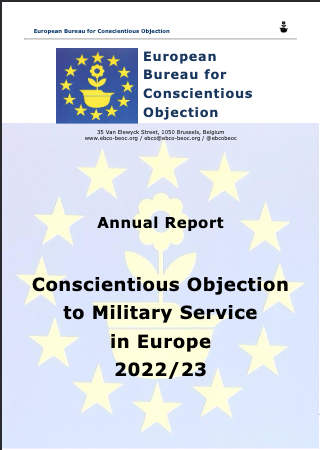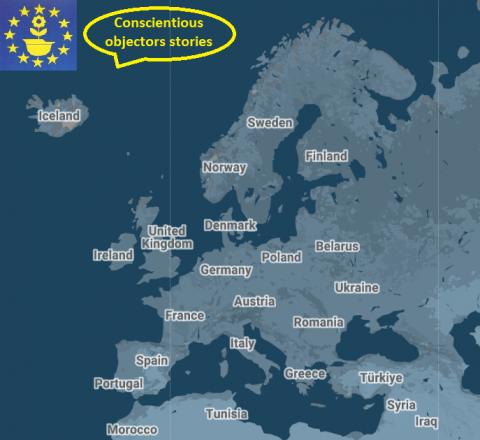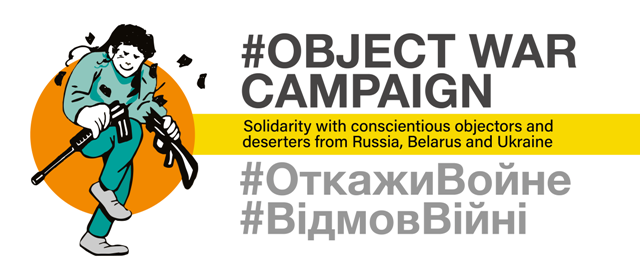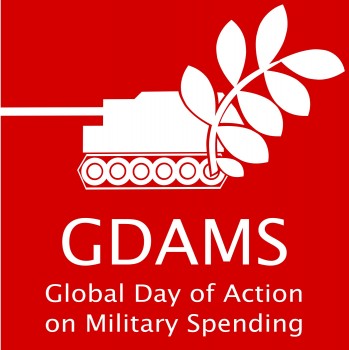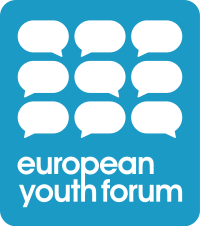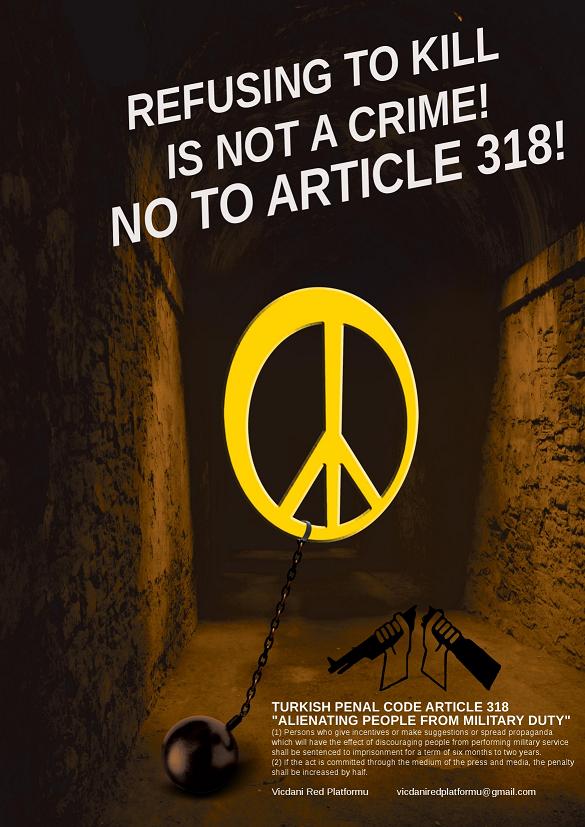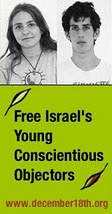Brussels - 25-6-2020 - Continuing violation of the European Social Charter in the case of alternative service for conscientious objectors in #Greece. Submission of EBCO to the European Committee of Social Rights.

Department of the European Social Charter, DG I – Directorate of Human Rights, Council of Europe, F-67075 Strasbourg Cedex, Continuing violation of Article 1§2 of the European Social Charter in the case of alternative service for conscientious objectors in Greece
Dear Madam, dear Sir,
The European Bureau for Conscientious Objection (EBCO) would like to draw once more the attention of the European Committee of Social Rights (ECSR) to the violation of “the right of the worker to earn his living in an occupation freely entered upon”, in the case of conscientious objectors in Greece.
Following EBCO’s comments of 27 October 2016 the ECSR asked the Greek Government to provide in its next report information on the issue of a disproportionate duration of alternative service that continued to be imposed to certain categories of conscientious objectors. (see Conclusions XXI-1-Greece-Article 1-2 of 12 December 2016). Unfortunately the Government of Greece until now didn’t answer the mentioned request. This is why EBCO takes the initiative to update the ECSR on recent developments in this context.
We hope that the information we enclose will contribute to advance the process of bringing Greek provisions of alternative service in line with the commitments emanating from the European Social Charter.
Yours sincerely
Friedhelm Schneider
President of the European Bureau for Conscientious Objection
Comments by the European Bureau for Conscientious Objection (EBCO-BEOC) on the 3d National Report on the implementation of the European Social Charter submitted by the Government of Greece
Introduction
On the occasion of the 3d National report of Greece on the implementation of the Revised European Social Charter[1], the European Bureau of Conscientious Objection (EBCO – BEOC) would like to comment once more on the violation of “the right of the worker to earn his living in an occupation freely entered upon” (Article1§2) in the case of conscientious objectors in Greece, and provide significant information concerning recent developments on this issue.
This submission should be read in conjunction with the previous 2016 EBCO submission[2] on the 26th National Report of Greece. In the aforementioned submission EBCO had explained in detail how the duration of the alternative civilian service in Greece continues to be in breach of Article1§2 of the European Social Charter for two categories representing the vast majority of conscientious objectors in Greece: those who are required to perform the full service (15 months of alternative service instead of 9 months of military service for the vast majority of conscripts, i.e. those serving in the Army – 67% additional time), as well as for those who, for reasons of family status, are required to perform the minimum service (5 months of alternative service instead of 3 months of military service – 67% additional time).
Following the aforementioned submission of EBCO and a parallel submission by the Greek National Commission for Human Rights (GNCHR)[3], the European Committee of Social Rights (hereinafter the Committee) in its conclusions had requested Greece “that the next report provide information on this issue”.[4]
Nevertheless, the Greek authorities in their recent 3rd report not only fail to provide any information on this issue, but also, despite this Simplified Report being nominally about “Developments regarding the Collective Complaints against Greece (2000-2014)”, the Greek authorities completely fail to cite Complaint 8/2000 “Quaker Council for European Affairs (QCEA) v. Greece” and thus to update the Committee on recent developments.
The European Bureau of Conscientious Objection, in its participatory status with the Council of Europe, and representing numerous member organizations[5], including the Quaker Council for European Affairs (QCEA) and the Association of Greek Conscientious Objectors, would like to inform the Committee about developments in 2019 concerning the main issue of the Complaint 8/2000.
Developments concerning the Complaint 8/2000
Reduction and subsequent increase of the duration of alternative service
Following an amendment of the relevant legislation[6], the previous government of Greece, by decision of the then Alternate Minister of National Defence in June 2019, [7] reduced the duration of the alternative service for all categories, consequently reducing the ratio between the duration of alternative service and that of military service.
According to that ministerial decision:
- The full alternative service became 12 months, that is 33% longer than the full military service of 9 months for the vast majority of conscripts (who serve in the Army).
- The first category of reduced alternative service became 9 months, that is more than 12% longer than the military service of 8 months for eligible conscripts serving in the Army.
- The second category of reduced alternative service became 6 months, and thus equal to the equivalent reduced military service in all branches of the armed forces.
- The third category of reduced alternative service became 3 months, and thus, equal to the equivalent reduced military service in all branches of the armed forces.
In the opinion of EBCO-BEOC, despite being a step towards the right direction, such a decision was inadequate, as the alternative service continued to be punitive for the first two categories, especially for those required to perform the full service. We contend that the reasonable and objective grounds required by the UN Human Rights Committee for a longer period of alternative service do not exist, and that conscientious objectors consequently face discrimination especially in terms of equal professional opportunities (e.g. missing the opportunity to participate in certain recruitment competitions for employees in the public sector).
Most importantly, the situation is significantly aggravated by the fact that, because of the lengthy procedures for examining the applications for conscientious objectors status, and further unjustified and occasionally illegal[8] delays of many months in this regard, the real time spent by the conscientious objectors outside the labour market, and thus without the opportunity to earn their living in an occupation freely entered upon, is far longer – sometimes even more than double that of conscripts serving in the armed forces.
However, as far as it concerns the standard established by the Committee, i.e. that the duration of alternative service should not exceed one and a half times the duration of military service, the decision of June 2019 was a landmark decision, because for the first time the situation in Greece for all categories of conscientious objectors, was (nominally) in conformity with the Article 1§2 of the European Social Charter.
Lamentably, the new government of Greece, elected in July 2019, rapidly reversed the decision. By decision of the Deputy Minister of National Defence jointly with the Deputy Minister of Finance, signed on the 24th of September 2019 and published on 4th October 2019,[9] the Ministerial Decision of June 2019 was rescinded and the duration of alternative service for all categories was reinstated at the previous levels.
The rapid reversal of policy does not speak of “reasonable and objective grounds”. It was essentially ideological.
After the joint Ministerial Decision of the 4th of October 2019, the situation became as follows:
- The full alternative service became again 15 months, that is 67% longer than the full military service of 9 months for conscripts serving in the Army (the vast majority).
- The first category of reduced alternative service became again 12 months, that is 50% longer than the military service of 8 months for Army conscripts.
- The second category of reduced alternative service became again 9 months - 50% longer than the equivalent military service of 6 months in all branches of the armed forces.
- The third category of reduced alternative service became again 5 months, - 67% longer than the equivalent military service of 3 months in all branches of the armed forces.
In both the first and the fourth of these scenarios, into which fall the vast majority of conscientious objectors, there is clear non-conformity with Article 1§2 of the Charter, as previously pointed out by both EBCO-BEOC and GNCHR.
Virtual suspension of procedures for granting conscientious objector status
Another negative development concerns an apparent “freeze”, i.e. a virtual suspension of the procedures for granting status of conscientious objector, possibly for more than a year, which consequently leads to unprecedented delays and a further violation of “the right of the worker to earn his living in an occupation freely entered upon” in the case of conscientious objectors in Greece.
EBCO-BEOC through its contacts in Greece, has received numerous complaints since 2019 that conscientious objectors have been waiting for many months for their applications to be examined. This may be because of delays in recomposing the committee to examine such applications.
One of the amendments of the legislation concerning conscientious objectors in 2019 was to amend the composition[10] of the special committee which examines the applications for conscientious objector status (and which submits a non-binding recommendation to the Minister of National Defence who takes the decision). The number of military officers in this special committee was to be reduced from two to one, and the number of university professors to be increased from two to three. A joint ministerial decision by the Ministries of National Defence, of Education and of Finance would have been necessary in order to nominate new members to the special committee – meanwhile previous appointments were rendered invalid.
However, it appears that neither the previous government nor the current one have issued such ministerial decision. Therefore, it is possible that since May 2019, when the new legislative provisions were put into effect, and up until (at least) late June 2020 there have been no special committee examining applications. As a result, there might be conscientious objectors waiting for more than a year for their applications to be examined. In such case, they are virtually left outside the labour market for a prolonged period, especially as far as it concerns the public sector where having performed military or alternative service is a requirement, but also in the case of private sector where it is difficult to employ a person who has been already called up to perform military or alternative service.
The current situation is grave. Even when Greece appoints a new special committee and resumes the assessment of applications, apart from the lengthy examination procedures themselves, and the usual further delays, most probably there will be also a significant backlog of applications to be addressed.
Conclusion
Conscientious objectors in Greece face multiple violations of their right to earn a living in an occupation freely entered upon, both in terms of the excessive duration of alternative service (compared with the duration of military service) as well in terms of the delays (lengthy procedures, further delays, current “freeze” for more than a year) in processing their applications. Greece should take immediate measures in terms of legislation and practice in order to be in conformity with Article 1§2 of the Charter.
[1] Greece, 3d report on the Revised European Social Charter.
https://rm.coe.int/greece3-en-simplified-report-collective-complains/16809ce324
[2] Comments from European Bureau for Conscientious Objection (EBCO-BEOC) on the 26th report
https://rm.coe.int/CoERMPublicCommonSearchServices/DisplayDCTMContent?documentId=09000016806b6cc3
[3] Comments from the Greek national Commission for Human Rights (GNCHR) on the 26th report
https://rm.coe.int/CoERMPublicCommonSearchServices/DisplayDCTMContent?documentId=09000016806bdb99
[6] Law 4609/2019, Official Journal (FEK) Vol. A, 67/3-5-2019, article 23, para. 1, amending para.2 of article 60 of Law 3421/2005.
[7] Decision Φ.421.4/4/216913 Σ.4045 of the Alternate Minister of National Defence, published in the Official Journal (FEK) Vol. B, 2477/24-6-2019.
[8] The para. 1 of Article 4 of the Decision Φ.420/79/81978/Σ.300 of the Minister of National Defence, published in the Official Journal (FEK) Vol. B, 1854/29-12-2005, regulating the details of the procedures for the alternative service, stipulates that the Minister of National Defence should issue a decision about whether granting an applicant the conscientious objector status (or not), within two (2) months after the recommendation of the special committee examining the application. Such a deadline is not always observed.
[9] Decision Φ.421.4/7/228631/Σ.6400, published in the Official Journal (FEK) Vol. B 3697/04-10-2019
[10] Law 4609/2019, Official Journal (FEK) Vol. A, 67/3-5-2019, article 23, para. 2, amending case (a) of para. 1 of article 62 of Law 3421/2005.

